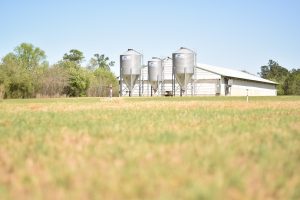 After reading the transcript of the trial I thought, They were in a trap before the first witness spoke a word.The roots of the lawsuit against Smithfield Foods run back over five years to when a pair of out-of-state lawyers, Charles Speer from Kansas City and Richard Middleton from Savannah, saw a way to make money by suing North Carolina hog farmers.To file their lawsuits Speer and Middleton needed clients. So, with the help of anti-hog farming groups, lawyers from their firms knocked on doors of farmers’ neighbors, saying, ‘Sign here, we’ll file the lawsuit, we’ll pay the bills, and if we win you’ll get part of the money.’It worked. They signed up hundreds of clients.They then partnered with a North Carolina law firm, Wallace and Graham, and filed their lawsuits. But, not long after that, a state judge sent Speer and Middleton packing, adding he didn’t ever want to see them in his courtroom again. The judge handed the lawsuits (and the clients) to Wallace and Graham which then partnered with a law firm from Texas.Earlier this year, before the first ‘nuisance’ trial started, the lead lawyer from Texas asked the judge to instruct Smithfield’s lawyers not to mention Speer and Middleton to the jurors. And the judge agreed. So, Smithfield couldn’t tell jurors about lawyers filing lawsuits to make money.As soon as the trial started the plaintiffs’ lawyer, Michael Kaeske, began hammering Smithfield Foods, telling jurors Smithfield was a big corporation with a lot of money and if it had just spent $500 million it could have cured the problems with odor on hog farms across North Carolina. Why hadn’t Smithfield done that? The answer was simple: Greed. Michael Kaeske made Smithfield Foods into a villain.And when the trial ended that was the picture the jury had: Smithfield was a greedy varmint and Michael Kaeske’s clients were long-suffering victims.No juror ever heard the rest of the story. Because no lawyer could ask a plaintiff: You lived beside Billy Kinlaw’s hog farm for 18 years and never complained once about odor – until those lawyers from Missouri and Georgia knocked on your door and said you could make money if you joined their lawsuit. Was that a coincidence?The jurors didn’t even know that the lawyers standing in front of them, suing Smithfield Foods, had asked the judge to keep that fact from them.Often, at the end of a trial, a jury has to answer a straightforward question: Who’s the villain? Michael Kaeske, free to say pretty much whatever he wanted about Smithfield Foods, turned it into a villain. And Smithfield’s lawyers, with their hands tied, couldn’t tell the rest of the story.
After reading the transcript of the trial I thought, They were in a trap before the first witness spoke a word.The roots of the lawsuit against Smithfield Foods run back over five years to when a pair of out-of-state lawyers, Charles Speer from Kansas City and Richard Middleton from Savannah, saw a way to make money by suing North Carolina hog farmers.To file their lawsuits Speer and Middleton needed clients. So, with the help of anti-hog farming groups, lawyers from their firms knocked on doors of farmers’ neighbors, saying, ‘Sign here, we’ll file the lawsuit, we’ll pay the bills, and if we win you’ll get part of the money.’It worked. They signed up hundreds of clients.They then partnered with a North Carolina law firm, Wallace and Graham, and filed their lawsuits. But, not long after that, a state judge sent Speer and Middleton packing, adding he didn’t ever want to see them in his courtroom again. The judge handed the lawsuits (and the clients) to Wallace and Graham which then partnered with a law firm from Texas.Earlier this year, before the first ‘nuisance’ trial started, the lead lawyer from Texas asked the judge to instruct Smithfield’s lawyers not to mention Speer and Middleton to the jurors. And the judge agreed. So, Smithfield couldn’t tell jurors about lawyers filing lawsuits to make money.As soon as the trial started the plaintiffs’ lawyer, Michael Kaeske, began hammering Smithfield Foods, telling jurors Smithfield was a big corporation with a lot of money and if it had just spent $500 million it could have cured the problems with odor on hog farms across North Carolina. Why hadn’t Smithfield done that? The answer was simple: Greed. Michael Kaeske made Smithfield Foods into a villain.And when the trial ended that was the picture the jury had: Smithfield was a greedy varmint and Michael Kaeske’s clients were long-suffering victims.No juror ever heard the rest of the story. Because no lawyer could ask a plaintiff: You lived beside Billy Kinlaw’s hog farm for 18 years and never complained once about odor – until those lawyers from Missouri and Georgia knocked on your door and said you could make money if you joined their lawsuit. Was that a coincidence?The jurors didn’t even know that the lawyers standing in front of them, suing Smithfield Foods, had asked the judge to keep that fact from them.Often, at the end of a trial, a jury has to answer a straightforward question: Who’s the villain? Michael Kaeske, free to say pretty much whatever he wanted about Smithfield Foods, turned it into a villain. And Smithfield’s lawyers, with their hands tied, couldn’t tell the rest of the story.
Smithfield Trial: The Rest of the Story
in News Article
